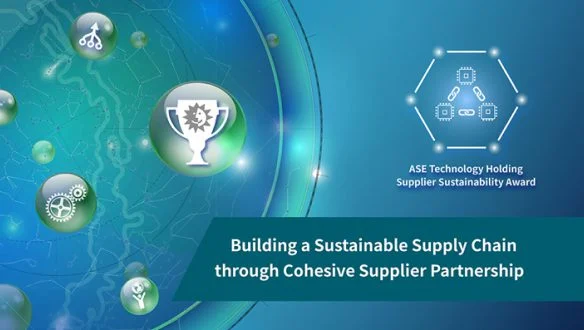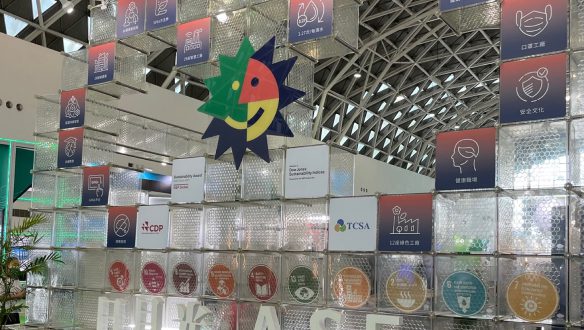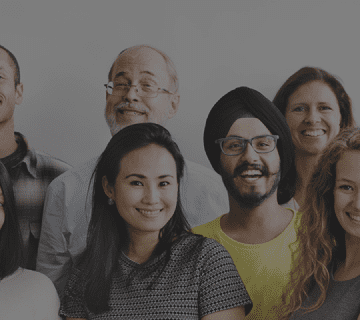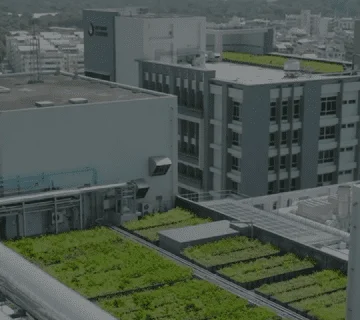
Sustainable Supply Chain
As a global leader in semiconductor assembly and testing services, ASE collaborates with many suppliers from around the world. We actively participate in industry organizations related to our businesses, and are committed to various initiatives aligned with our core business and sustainable development. In 2017, ASE co-founded the Taiwan Alliance for Sustainable Supply (TASS) to create a platform that promotes sustainable supply, circular economy, and the integration of supply management, logistics and information exchange.
DRC Conflict-Free products since 2013 *
OSAT to establish “Supplier Sustainability Award”
Providing guidance to suppliers to reach a 3% reduction in GHG emissions and water resource consumption.
Supply Chain Management Strategy
ASE has formulated a comprehensive supply chain management strategy as a guidance for collaboration with suppliers.
Sustainable Supply Chain Risk Investigation and Assessment
We conduct an annual three-step supplier sustainability risk evaluation and analysis. Tier 1 suppliers complete a questionnaire that covers regulatory compliance, continuous operation management, conflict mineral management, environmental protection, health and safety, labor rights, etc.
Non-performing suppliers that have been identified will be guided on areas that need improvement and monitoring; while suppliers with outstanding performance will be recognized to promote sustainable development within the supply chain. Since 2017, ASE has been recognizing suppliers with excellent sustainability performance with the ASE Supplier Sustainability Awards.
E-Supply Chain Collaboration
To increase mutual collaboration across the supply chain, ASE launched the e-Hub in 2010, a platform that provides real-time information exchange, enabling a supply chain that is agile and eliminating the bullwhip effect.
We have adopted the following approaches to upgrade the efficiency of the supply chain:
- Implementing a resilient supply chain management system that enables both buyers and suppliers to execute requests for quotations, respond to purchase orders, and send shipping notices online.
- Allowing real-time WIP (work in process) information of suppliers’ inventory at each processing site, and uploading WIP data through e-Hub.
- Adopting B2B information exchange to support MRP (material requirement planning) for calculating valid orders. In addition, to facilitate global deployment, we analyze material demand and supply risks, and conduct a comprehensive inventory of the required materials against customer demand.

Creating Value in a Circular Economy
In 2020, we launched a program that encourages suppliers to submit 1-3 year sustainability projects emphasizing low carbon and circularity goals. By doing so, we hope to stimulate innovative collaboration models, deepen supplier partnerships, and jointly create a sustainable supply chain.
For the year 2023, we selected one supplier each from the categories of ‘Low Carbon’ and ‘Circular’ as winners of the sustainability award. ASEH will subsequently conduct independent on-site audits in 2024 and 2025 to verify the performance and progress of the winning suppliers’ projects, and disburse sponsorship fees accordingly.
Sustainable Strategies
Low Carbon
Circular
Selected Suppliers
Hwa Shu Enterprise Co., Ltd.
Chiu Tze Chemical Co., Ltd.
Collaboration Project
Introduction of energy-saving electric heating system
Waste liquid recycling and reuse
Expected Benefits
- Reducing power consumption
- Stabilizing temperatures during the manufacturing process
- Enhancing heating and cooling efficiency to increase manufacturing capacity
- Increasing waste recovery rate and saving on waste disposal expenses
- Increasing the use of recycled packaging materials
- Increasing the use of recycled raw materials

External Initiatives to Extend Positive Social Influence
Member of Responsible Business Alliance (RBA)
We adopt the use of the RBA Self-Assessment Questionnaires (SAQs) to identify labor, environmental and ethical risks. We also proactively apply these assessments to the sustainable management of our supply chain to ensure compliance with workplace safety, labor rights, environmental protection and ethics.
Member of Taiwan Alliance for Sustainable Supply (TASS)
In 2017, TASS was established as a platform for integrating resources from the government, academia and business enterprises to accelerate a circular economy.
We supported the first TASS 2020 Asia's Sustainable Supply & Circular Economy event which featured 10 forum tracks, 80 sustainability business-related matchmaking sessions and more than 350 exhibition booths. In 2023, ASEKH used the imagery of the sustainable lighthouse to symbolize infinite light, sharing actions and targets of the net-zero goal to raise awareness of environmental sustainability and create a positive impact.








